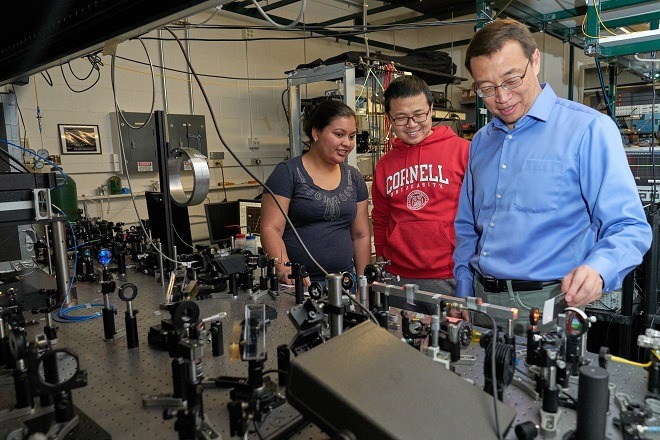The National Science Foundation (NSF) funds Neurotechnology Hubs and innovative tools to advance research on Brain & Behavior

– Cornell University neuroscientist Chris Xu will study how brains produce behavior in species across a range of sizes.
NSF issues awards to advance a national research infrastructure for neuroscience (press release by the National Science Foundation):
“The National Science Foundation (NSF) has made 17 Next Generation Networks for Neuroscience (NeuroNex) awards to aid the research community as it pursues one of its grandest challenges: understanding the brain.
These projects will support the development of innovative, accessible and shared capabilities and resources, as well as theoretical frameworks and computational modeling to advance neuroscience research…
Nine of the new awards are for NeuroNex Neurotechnology Hubs, which will focus on the development, refinement and dissemination of innovative neurotechnologies. These hubs will provide:
- Novel transgenic and molecular approaches to measure and manipulate circuit activity.
- Novel instrumentation and genetic approaches for imaging structure and dynamics of neural circuits.
- New materials and devices for large-scale electrical recordings of neural activity.
In addition, NSF issued six smaller NeuroNex Innovation awards, focused on developing potentially revolutionary, early-stage tools that can be integrated with other NeuroNex projects. All NeuroNex awards will also support workforce training opportunities. The complementary nature of the technologies and the mutual synergies between the technologies and the theories hold the promise of ushering in new ways of conducting neuroscience research. NeuroNex Innovation awards:
- Southwest Magnetogenetics Project (SoMa): Jacob Robinson, Rice University
- Towards automatic analysis of multi-terabyte cleared brains: Joshua Vogelstein, Johns Hopkins University
- A national resource for mesoscale and connectomic brain mapping: Narayanan (Bobby) Kasthuri, University of Chicago
- Behavioral technologies: Adam Kepecs, Cold Spring Harbor Laboratory
- Chemical and genetic methods to measure and manipulate neurons with light: Evan Miller, University of California, Berkeley
- Voltage to Light Transducers (VoLT) collaborative: Francois St-Pierre, Baylor College of Medicine”


